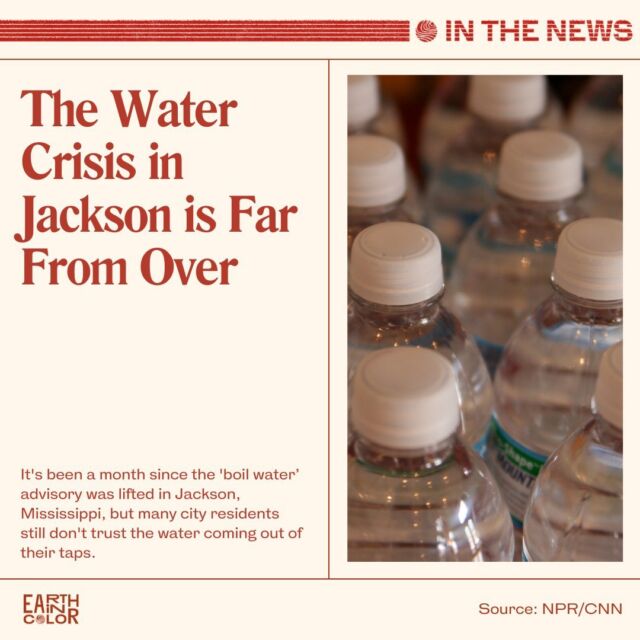This story was originally published in the first issue of Radicle, our interactive print publication which centers Black voices and perspectives in sustainability and the environment. Radicle explores a range of topics including environmental justice, indigeneity, sustainable homebuilding, and plant-forward home cooking. The publication was designed to spark curiosity and celebrate community, all while healing our people and the planet.
to our mother
clear-cutting our forests and shaving our legs the unwelcome penetrations faulty pipelines leaking onto stolen lands telescopes to discover what was already known the never-ending protest for a basic right to our body there is an affinity between us and the Earth in that we’ve both been polluted, subjugated, violated. we are fucked and then left to clean up our bodies are filled with the same slime the toxins running through rivers now run through our blood how naive of man to poison our source to poison our soil to poison our water to poison our skies to poison our Children, these children, may not know the planet as anything but a concrete battleground this is a war planet now and all the suffering is justified as collateral damage to man’s desire it is time we reclaim our bodies before somebody else does it is time we reclaim Earth. --Fiona Rae Brown
REFLECTION BY NIA MCALLISTER
Imagined as seemingly devoid of color, the invention of “the environment” as an untouched, unpopulated expanse of wilderness negates history, erases Indigenous narratives, and establishes access to nature as a privilege. This narrow visioning of the outdoors as exclusive is as dangerous as it is strategic. Despite the complex legacies of communities of color tending to and stewarding the land both forcibly and freely, (green) spaces remain racialized. We are living in a landscape of inequity.
It is no accident that environmental racism plays culprit to the insidious redlining of our neighborhoods. It is no accident that the least expensive land houses low-income folks of color alongside hazardous dumping sites for toxic waste. It is no accident that our Black and brown communities experience disproportionate health burdens directly related to pollution and poor air quality. It is no accident that in these same communities, where grocery stores and coffee shops remain absent, we find no shortage of liquor stores and corner shops. It is no accident that these sites of food apartheid are the product of interlocking systems of oppression.
Landscapes of inequity are never accidental. In response, the Environmental Justice Movement serves to uproot these structural disparities by addressing the history of systemic neglect, pollution, and degradation, and advocating that everyone should have access to safe and equitable places to call home.
“Landscapes of inequity are never accidental.” Nia McAllister

Delegates to the First National People of Color Environmental Leadership Summit held on October 24-27, 1991, in Washington, DC, drafted and adopted these 17 principles of Environmental Justice. Since then, the Principles have served as a defining document for the growing grassroots movement for environmental justice.
More info on environmental justice and environmental racism can be found online.
Introductory text attributed to Energy Justice Network
WE, THE PEOPLE OF COLOR, gathered together at this multinational People of Color Environmental Leadership Summit, to begin to build a national and international movement of all peoples of color to fight the destruction and taking of our lands and communities, do hereby re-establish our spiritual interdependence to the sacredness of our Mother Earth; to respect and celebrate each of our cultures, languages and beliefs about the natural world and our roles in healing ourselves; to ensure environmental justice; to promote economic alternatives which would contribute to the development of environmentally safe livelihoods; and, to secure our political, economic and cultural liberation that has been denied for over 500 years of colonization and oppression, resulting in the poisoning of our communities and land and the genocide of our peoples, do affirm and adopt these Principles of Environmental Justice:
1) Environmental Justice affirms the sacredness of Mother Earth, ecological unity and the interdependence of all species, and the right to be free from ecological destruction.
2) Environmental Justice demands that public policy be based on mutual respect and justice for all peoples, free from any form of discrimination or bias.
3) Environmental Justice mandates the right to ethical, balanced and responsible uses of land and renewable resources in the interest of a sustainable planet for humans and other living things.
4) Environmental Justice calls for universal protection from nuclear testing, extraction, production and disposal of toxic/hazardous wastes and poisons and nuclear testing that threaten the fundamental right to clean air, land, water, and food.
5) Environmental Justice affirms the fundamental right to political, economic, cultural and environmental self- determination of all peoples.
6) Environmental Justice demands the cessation of the production of all toxins, hazardous wastes, and radioactive materials, and that all past and current producers be held strictly accountable to the people for detoxification and the containment at the point of production.
7) Environmental Justice demands the right to participate as equal partners at every level of decision-making, including needs assessment, planning, implementation, enforcement and evaluation.
8) Environmental Justice affirms the right of all workers to a safe and healthy work environment without being forced to choose between an unsafe livelihood and unemployment. It also affirms the right of those who work at home to be free from environmental hazards.
9) Environmental Justice protects the right of victims of environmental injustice to receive full compensation and reparations for damages as well as quality health care.
10) Environmental Justice considers governmental acts of environmental injustice a violation of international law, the Universal Declaration On Human Rights, and the United Nations Convention on Genocide.
11) Environmental Justice must recognize a special legal and natural relationship of Native Peoples to the U.S. government through treaties, agreements, compacts, and covenants affirming sovereignty and self-determination.
12) Environmental Justice affirms the need for urban and rural ecological policies to clean up and rebuild our cities and rural areas in balance with nature, honoring the cultural integrity of all our communities, and provided fair access for all to the full range of resources.
13) Environmental Justice calls for the strict enforcement of principles of informed consent, and a halt to the testing of experimental reproductive and medical procedures and vaccinations on people of color.
14) Environmental Justice opposes the destructive operations of multi-national corporations.
15) Environmental Justice opposes military occupation, repression and exploitation of lands, peoples and cultures, and other life forms.
16) Environmental Justice calls for the education of present and future generations which emphasizes social and environmental issues, based on our experience and an appreciation of our diverse cultural perspectives.
17) Environmental Justice requires that we, as individuals, make personal and consumer choices to consume as little of Mother Earth’s resources and to produce as little waste as possible; and make the conscious decision to challenge and reprioritize our lifestyles to ensure the health of the natural world for present and future generations.












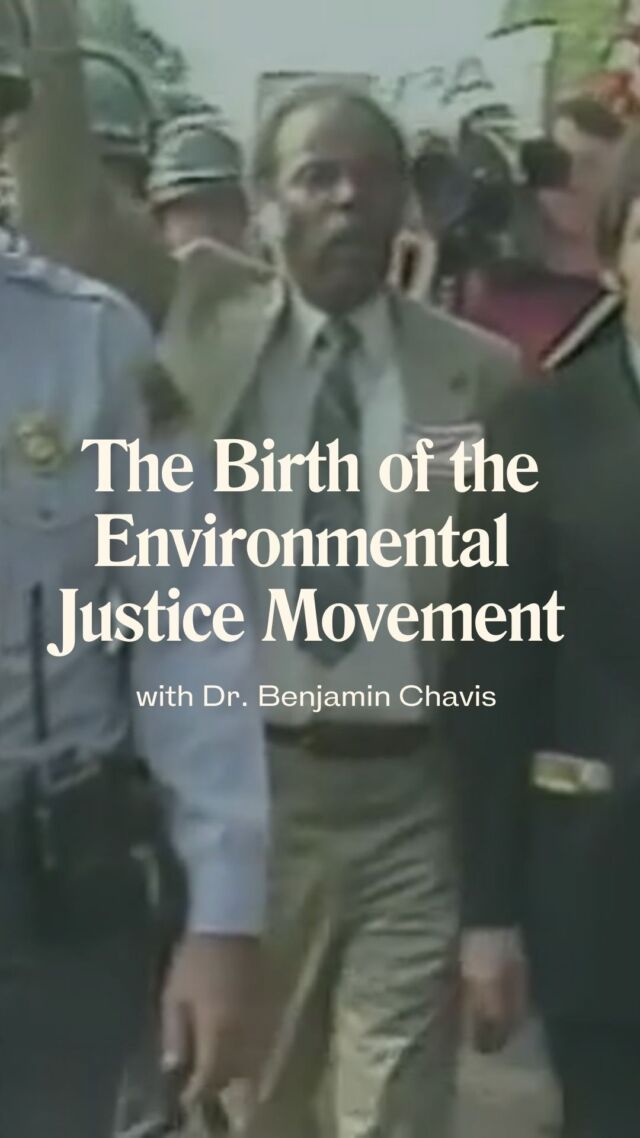

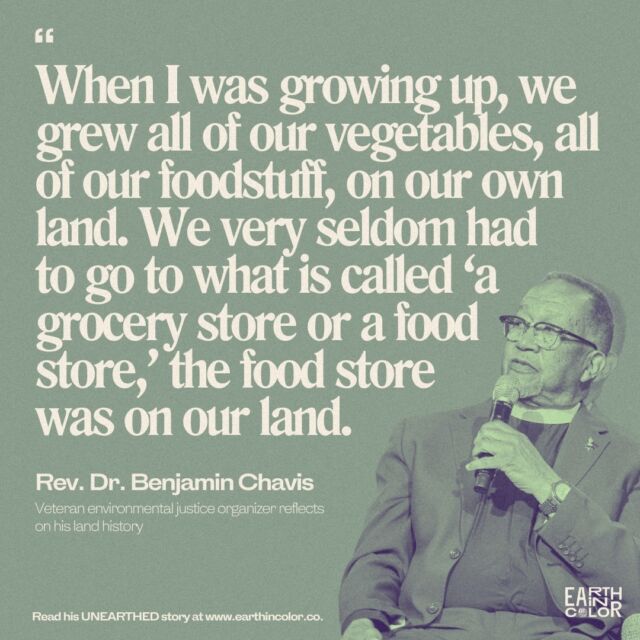





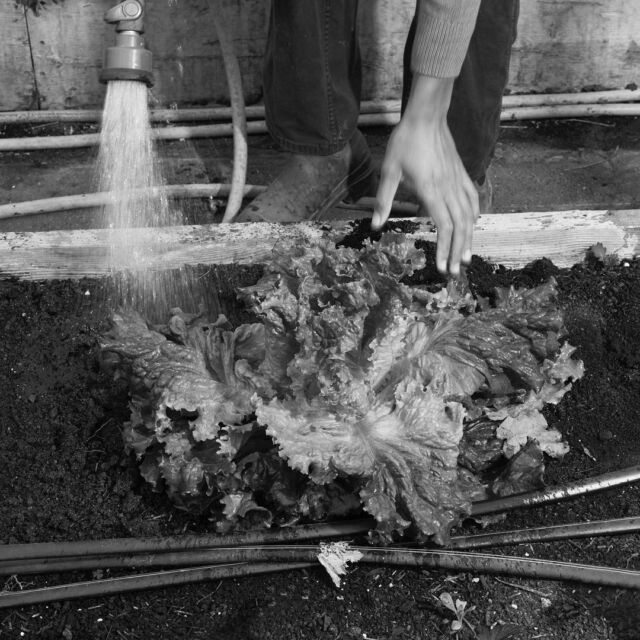



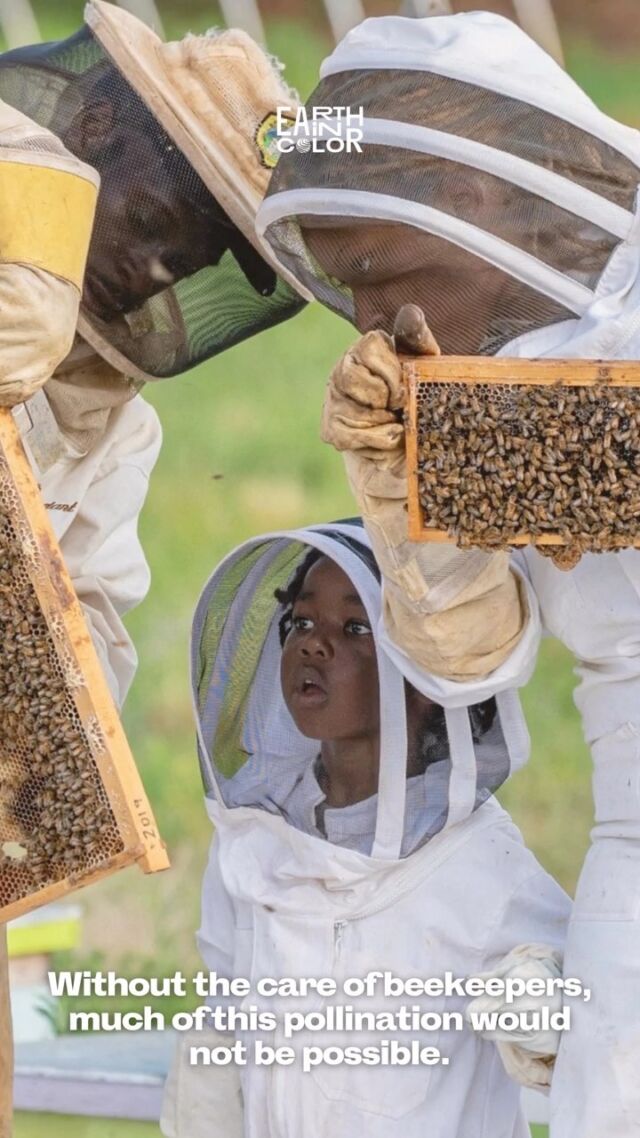
![Did you know you could be buying fake honey? 👀🍯
According to @detroithives co-founder Timothy Paule Jackson, “ninety percent of most honey that you get in big box stores is fake.” To make sure you’re getting the real stuff, he suggests checking out the nutrition label. Fake honey will have ingredients like “high fructose corn syrup, peach syrup, [and] it’ll have some type of sugar.” Avoid honey labeled as “pure” or “pasteurized,” and instead look for words like “raw” or “local.”
And with winter approaching, it’s the perfect time to stock up — not only is it full of vitamins and minerals, but real honey can also be used as a remedy for sore throats and coughs. Swipe to check out some of our favorite Black-owned bee farms and Black beekeepers selling the good stuff 🐝🍯](https://earthincolor.co/wp-content/uploads/sb-instagram-feed-images/314552686_126502226881255_7598404171432106028_nfull.jpg)



